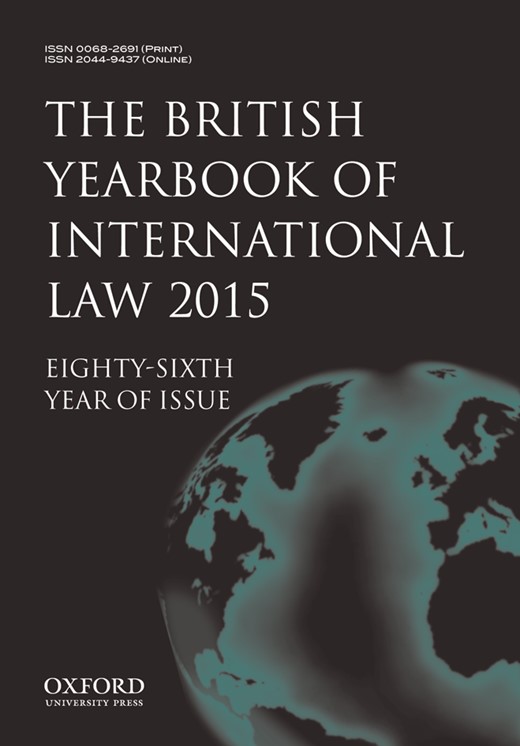-
Views
-
Cite
Cite
Michael A Becker, Lawfare: Law as a Weapon of War. By Orde F. Kittrie, British Yearbook of International Law, Volume 86, Issue 1, 2016, Pages 199–203, https://doi.org/10.1093/bybil/brw005
Close - Share Icon Share
Extract
William Schabas has described ‘lawfare’ as a term that ‘appears to have no useful or practical purpose’.1 In Lawfare: Law as a Weapon of War, Orde F Kittrie, a law professor at Arizona State University, sets out to prove otherwise. This wide-ranging book provides a realpolitik account of how governments and non-state actors use law to achieve goals that might otherwise require ‘kinetic warfare’—that is, the use of force. Examples of lawfare include private civil lawsuits against terrorist organizations and their state sponsors; legislation and regulatory action designed to persuade (or coerce) commercial entities into ceasing to do business with foreign adversaries; and domestic prosecutions for the provision of material support to terrorists. Lawfare can also mean ‘name-and-shame’ campaigns and boycott and divestiture movements led by non-governmental organizations (NGOs) (if premised on the target’s non-compliance with legal obligations) and formal investigations (eg, by commissions of inquiry or the International Criminal Court (ICC)) into alleged unlawful conduct. The book is a ‘call to action’ directed at United States (US) policy-makers, who, in Kittrie’s view, have failed to develop a consistent, systematic approach to lawfare (329).



